http://www.angolapress-angop.ao/noticia-e.asp?ID=385126
I pasted it below for those that want to read it here:
Poverty hits hard on Ethiopia`s vulnerable kids
Addis Ababa, Ethiopia, 10/21 - Their personal accounts of survival in poverty are emotionally gripping and profoundly disgusting, yet Ethiopia`s street children are avowedly determined not to go back to their countryside roots.
Many of them are orphans, but in their ranks too are those who have been abandoned by parents or close relatives after being intentionally subjected to cruelty, including maiming.
Others simply find the streets as the only haven where they can strike up friendship that actually gives them the strength to survive as they forage for food.
"I don`t want to go back home. My parents are very poor. I know they are enduring hardship."
They have three other children and there is nothing they can do for me," said 12-year-old Gutama Zombiye (not his real name) who hails from Arba Minch, some 400 km south of the capital, Addis Ababa.
Gutama was brought to the city by his uncle on a false promise to find him a good school.
"When I arrived here I had the impression of starting a new life," he recalled. But soon he was thrown into a terrible confusion, as he had to come to terms with the deception of his uncle.
To his disappointment, Gutama ended up being one of the uncle`s child- labourers in a backyard shawl-weaving factory located at Shoromeda in the city.
For one year, he was paid two birr as his daily wages to buy himself meals. He slept rough and the uncle never talked again about his school promise.
Colourful, traditional shawls made by the child-labourers sell for 17 up to 30 birr apiece ($1 is equivalent to 8.67 birr) and they have become part and parcel of the nation`s cultural image.
However, tourists and other foreign visitors flocking to Shoromeda market to buy traditional Ethiopian dresses as souvenirs pay no attention to the plight of children forced to work on shawl looms.
Like Gutama, these children lead a horrible life in shacks behind the shops, where they toil to fill the pockets of their callous masters.
Besides starvation, they are exposed to confinement, physical violence and overwork.
"My uncle has a penchant for booze. As a result of his hard drinking, he did not give me food. He was beating me for no reason. Several times he threatened to kill me if I reported the matter to the police," said Gutama, narrating his ordeal at a child protection unit, jointly run by Forum on Street Children-Ethiopia (FSCE) and the city police.
FSCE, a child rights NGO formed in 1989, strives to create supportive conditions for urban disadvantaged and street children.
With support from Save the Children Sweden, the NGO works to protect child victims of physical abuse, sexual abuse and exploitation, trafficking as well as separation from families.
"Thousands of young girls and boys from destitute families in rural Ethiopia are taken to the cities every year just like commodities," explained Sammo Sima of FSCE.
"They are trafficked by brokers who make deals with bar owners, `baluka` (brothel) operators and other occasional employers. They think city life is wonderful but the reality turns out differently.
"In the case of girls, FSCE officials explain, the most distressing experience they face is sexual abuse and exploitation.
According to UNICEF, child labour is a common phenomenon in Ethiopia and there are large numbers of child sex workers.
A host of factors drive Ethiopian children into the streets, sex work and bonded labour against their will.
An assessment carried out at the end of 2004 by UN agencies, in collaboration with the Ministry of Labour and Social Affairs, came up with a figure of 4.6 million orphans in Ethiopia.
This is the largest number of orphans in any country in the world, according to UN agencies.
Of these, about 800,000 have been orphaned by AIDS. Given the current HIV prevalence rate of 4.6 percent, the orphaned population is expected to grow.
Up to 70 percent of Ethiopia`s orphans live with immediate family members, 20 percent live with other relatives and the rest live alone or with friends.
Around 65 percent of all orphans come from households with a monthly income of less that 100 birr (about $11), showing a clear correlation between household poverty level and the social status of children.
Most of the households taking care of orphans were female-headed. It is estimated that half of the orphans in the country lack adequate food.
With regard to education, UNICEF officials say school attendance is one aspect of the problems facing orphans.
Confronted with shortages of daily meals, clothing, school uniforms and supplies, many orphans drop out of school at an early age.
Government and UNICEF officials admit that the situation is far worse for girls who are taken out of school to look after their younger siblings or sick adults in the household.
"The fact that they are not going to school makes orphans more vulnerable to abuse, neglect, dispossession, exploitation and stigmatisation," said Alessandro Conticini, head of Child Protection and HIV/AIDS section at UNICEF`s country office in Addis Ababa.
"While orphanhood increases children`s vulnerability, it would be wrong to equate vulnerability exclusively with orphanhood," Conticini added, pointing out that the number of vulnerable kids was higher than the identified orphans.
A recent research by Ethiopia`s Population Council found that more than 30 percent of girls aged 10-14 years in Addis Ababa were not living with their parents.
Some of them lived with supportive relatives but a large number were living in potentially exploitative situations, on the streets, working or begging.
"While this crisis of vulnerable children deprives them of their rights to human development, it also proves to be a growing burden on the already impoverished communities," Conticini observed.
It is against this background that UNICEF and the Ethiopian government will on 25 October 2005 launch a three-pronged `Campaign for Vulnerable Children` to raise the profile of orphans and vulnerable children.
The first part of the drive focuses on hearing the children`s dreams through a nationwide consultation.
In the second part, headed by Olympic champion and UNICEF Goodwill Ambassador Kenenisa Bekele, the campaign would seek to raise funds for organisations supporting Ethiopia`s most vulnerable children.
The third part will focus on candidates for `woreda` (district) council elections across Ethiopia in January and February next year.
Candidates will be asked to sign up to the `call to action` before the election, committing them to work towards fulfilling its goals.
Making the dreams of Ethiopia`s vulnerable children come true will, indeed, save them from alienation to shake off the shackles of poverty and make a name for themselves.



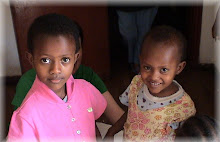
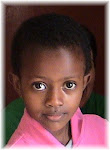
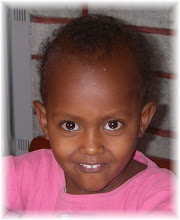


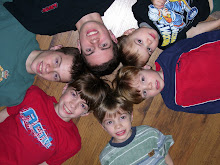

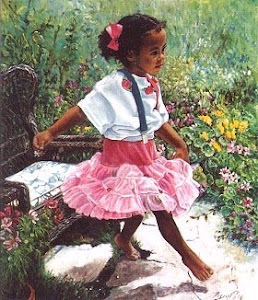








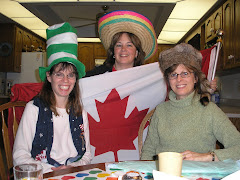
No comments:
Post a Comment